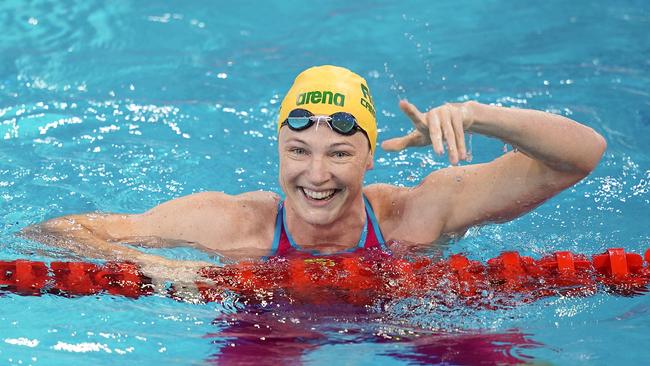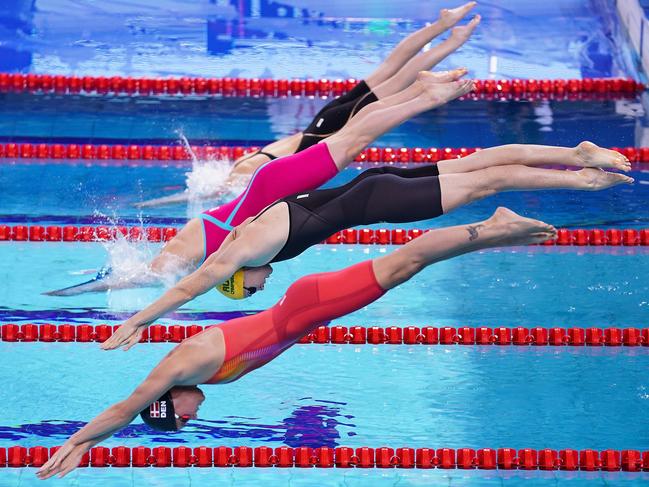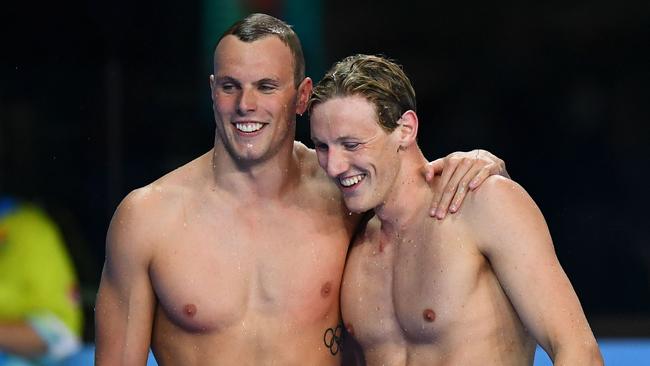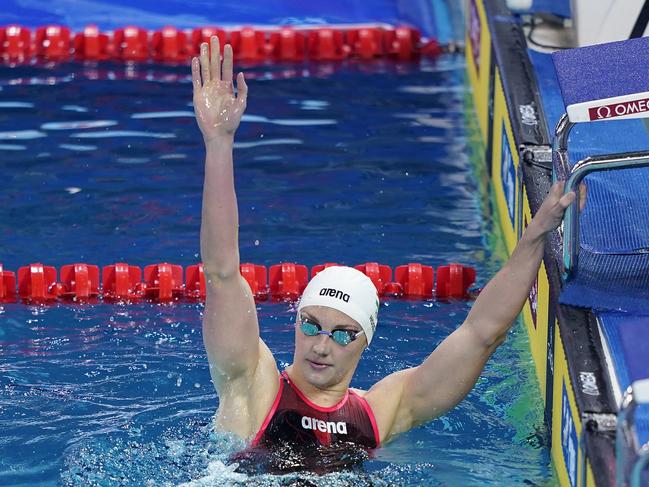Swimmers strike it rich after long battle for better pay
Australian golden girl Cate Campbell has hit the jackpot with a mind-boggling hourly pay rate after leading the global rebellion that forced swimming’s filthy rich governing body into sharing its enormous fortune.

Other Sports
Don't miss out on the headlines from Other Sports. Followed categories will be added to My News.
AUSTRALIAN golden girl Cate Campbell has hit the jackpot with a mind-boggling hourly pay rate of $851,118 after leading the global rebellion that forced swimming’s tight-fisted governing body into giving athletes a bigger share of its vast fortune.
Campbell was only in the water for 156.5 seconds but still pocketed $37,000 in the biggest payday in swimming history in China over the weekend.
Backstroker Emily Seebohm also struck it rich, picking up $25,500 for less than five minutes in the pool despite suffering from food poisoning, while up-and-coming freestyler Jack McLoughlin banked $8500 for less than four minutes following home the sport’s most controversial competitor, China’s Sun Yang.

All of the invitation-only swimmers also received appearance fees as well as having all their travel and accommodation expenses covered as part of FINA’s desperate attempt to halt a full-scale mutiny threatening its 110-year control of the sport.
One of the richest sporting bodies on the Olympic program, FINA is under fire from elite swimmers about its lack of transparency on key decisions and how it spends its enormous wealth.
FINA raked in $266 million between 2013-16 but allocated just 16 per cent of its expenditure on prizemoney to swimmers, most of whom survive on minimum wage.
Instead it splashes out millions on “FINA family expenses”, including travel, accommodation and per diems for officials, and $25 million on maintenance at its plush headquarters in Switzerland.
When disgruntled swimmers revealed their intention to join a new breakaway global professional league offering athletes a bigger slice of profits, FINA threatened to ban participants from the Olympics.

Infuriated by FINA’s strongarm approach, Campbell emerged as one of the leaders of the international revolt, spearheading a wave of public condemnation that resulted in a class-action lawsuit against the governing body.
FINA quickly backed down and hastily offered an olive branch, a three-leg “Champions” series worth $5.5 million, which kicked off in China on the weekend.
While the cash was welcomed, the senseless timing of the series and the absence of many top stars made a mockery of FINA’s claim of “staging the greatest swimming events ever seen.”
With only four swimmers invited for each event, FINA vowed to invite only world and Olympic champions, world record holders and the top-ranked swimmers in each event. But it was forced to lower the bar after it couldn’t deliver.

Rio gold medallists Kyle Chalmers and Mack Horton turned down their invites as only three Australians attended the opening leg, with none planning to compete in the remaining two legs because it’s too close to the national trials for this year’s world titles.
Plenty of the sport’s biggest global superstars, including Katie Ledecky and Adam Peaty, were also missing, forcing FINA to fill the vacant gaps with local Chinese swimmers, who were gifted $7000 just for coming last, and anyone else who was available.
Brazilian veteran Nicholas Santo — competing at the ripe old age of 39 — won $14,000 for winning a butterfly race that lasted 23 seconds while American Michael Andrew, one of the lead plaintiffs in the lawsuit against FINA, made $62,000 after being offered spots in seven individual events, none of which he won.
Another lead plaintiff, Katinka Hosszu, swam six individual events, winning three but well off her best times, earned $69,000, second overall to Sweden’s Sarah Sjostrom, who topped the overall money list with $72,000 on the weekend.
